Yunxin Zhu
Junior Associate Professor, Doctor of Biological Engineering
- zhu.yunxin

- Areas of Research
- Environmental Purification, Biomass Conversion, Hydrogen and Methane Fermentation System, Anaerobic Digestion, System of Solar Light Utilization, Photocatalysts
- Profile
- Research
-
Dr. Zhu Yunxin, hails from the beautiful coastal city of Qingdao in Shandong, China. With a passion for unraveling the mysteries of biology and environmental sciences, her quest for knowledge started at Shandong Agricultural University, where she pursued a bachelor’s degree in Food Quality and Safety from 2012 to 2016. This foundational education laid the groundwork for her subsequent endeavors. Seeking further academic refinement, she embarked on an international journey, venturing to the University of Tsukuba in Japan.
During her time at Tsukuba, she delved deeper into the intricate realm of bioenvironmental sciences. As a research student from 2017 to 2018, Dr. Zhu immersed herself in the exploration of agro-biological resource science. This endeavor paved the way for her Master’s in Biotechnology, which she proudly earned in 2020. Undeterred by challenges, she continued her scholarly pursuits, culminating in the attainment of a Doctorate in Biotechnology in 2023.
Dr. Zhu’s academic achievements have been recognized through various accolades, including the prestigious Tsukuba University President’s Award for outstanding accomplishments in research and academic pursuits. Additionally, her contributions to the scientific community have been acknowledged through accolades such as oral presentation awards and commendations from esteemed institutions. Moreover, she actively engages in academic and social activities, notably serving as a student leader for an international graduate student forum. Utilizing her leadership skills, she orchestrated the planning and execution of this esteemed event, contributing to its resounding success.
Beyond the confines of academia, Dr. Zhu is an avid enthusiast of diverse interests. Whether she is strolling with her beloved golden retriever, belting out tunes, indulging in Nintendo Switch games, or honing her skills in musical instruments like the guitar, ukulele and erhu, she finds solace and joy in pursuing her passions.
-
Dr. Zhu’s research focused on ‘Turning Trash into Treasure: How Light Can Supercharge Waste Management’.
When we talk about dealing with organic waste like food scraps and other biodegradables, we’re not just talking about getting rid of garbage. We’re also talking about creating renewable energy sources and reducing pollution. One promising method for this is anaerobic digestion (AD), a process that breaks down waste to produce biogas, mainly methane (CH4). But there’s a hitch: too much inhibitors (for example, ammonia) in the mix can gum up the works and make the process less efficient.To solve this problem, Dr. Zhu came up with a novel strategy called ‘light stimulation’, which has never been used in the AD process– literally. By intermittently stimulating the microbes responsible for AD with light, especially solar light, we might just have a simple, cost-effective solution to boost waste-to-energy efficiency (Fig.1).
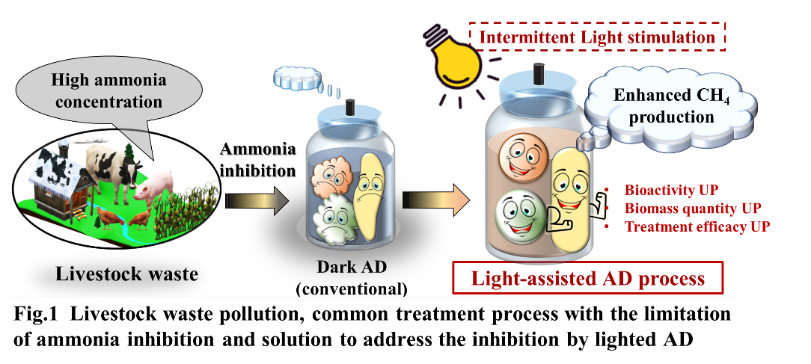
Her research dives deep into optimizing this light-assisted AD process to tackle the challenge of ammonia inhibition head-on. Here’s what Dr. Zhu discovered:
Using a technique called response surface methodology (RSM), she tinkered with two crucial factors: how bright the light should be and how long it should shine in order to stimulate the microbes. Turns out, getting these just right can double the amount of methane produced compared to keeping things in the dark (Fig. 2).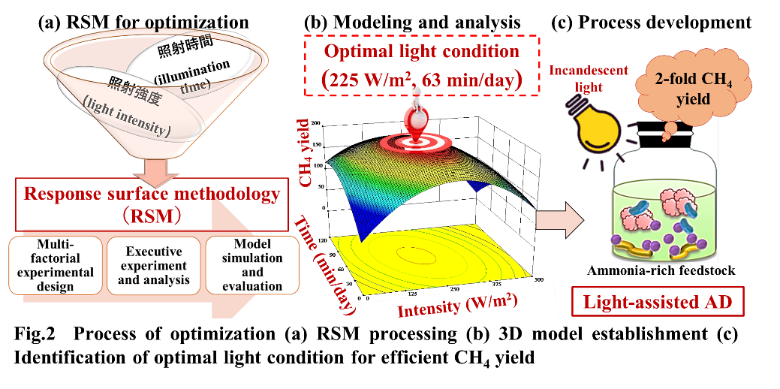
Dr. Zhu didn’t stop at theory—she wanted to see if this bright idea could shine in the real world. She tested it with different levels of ammonia, under various light sources, and over long operation periods. Turns out, our light-assisted system consistently outperformed the traditional method, even under the sun’s rays (Fig. 3).
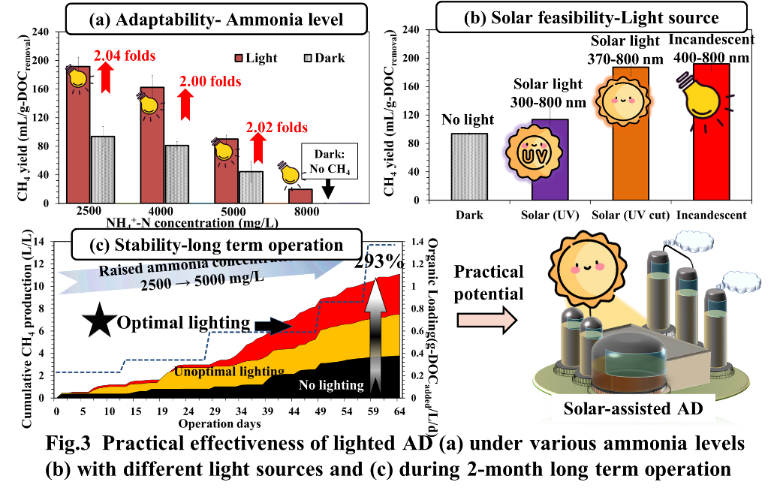
Ever wonder why light makes such a big difference? She did too. So, she delved into the microscopic world to see what was going on. Turns out, light doesn’t just wake up the microbes; it also changes how they behave and interact, making the whole process more efficient (Fig.4).
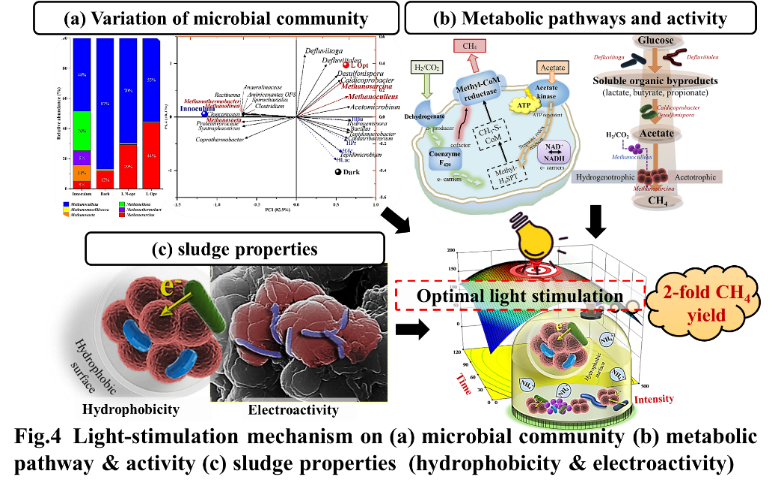
Finally, Dr. Zhu explored how different colors of light affect the process. It turns out that a mix of colors—like what you’d get from sunlight—works best, activating specific genes and speeding up the conversion of waste into methane (Fig. 5).
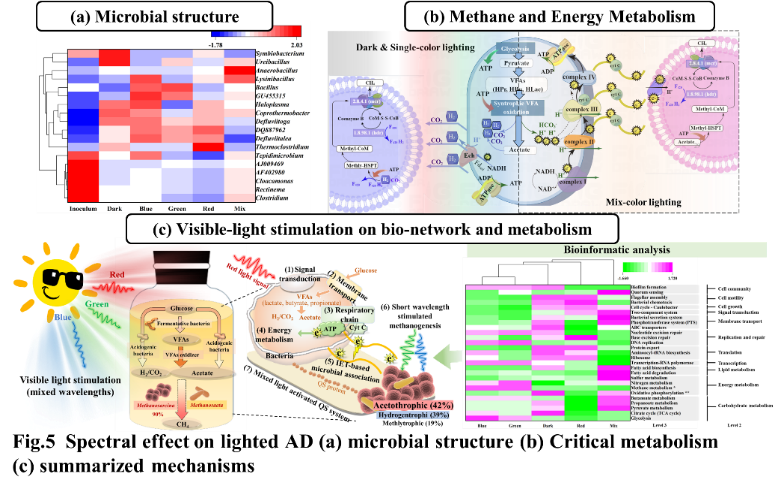
In a nutshell, Dr. Zhu’s research shows that harnessing the power of natural sunlight could revolutionize how we manage organic waste. By making AD more efficient and practical, we’re not just cleaning up the planet—we’re also lighting the path towards a renewable energy future.